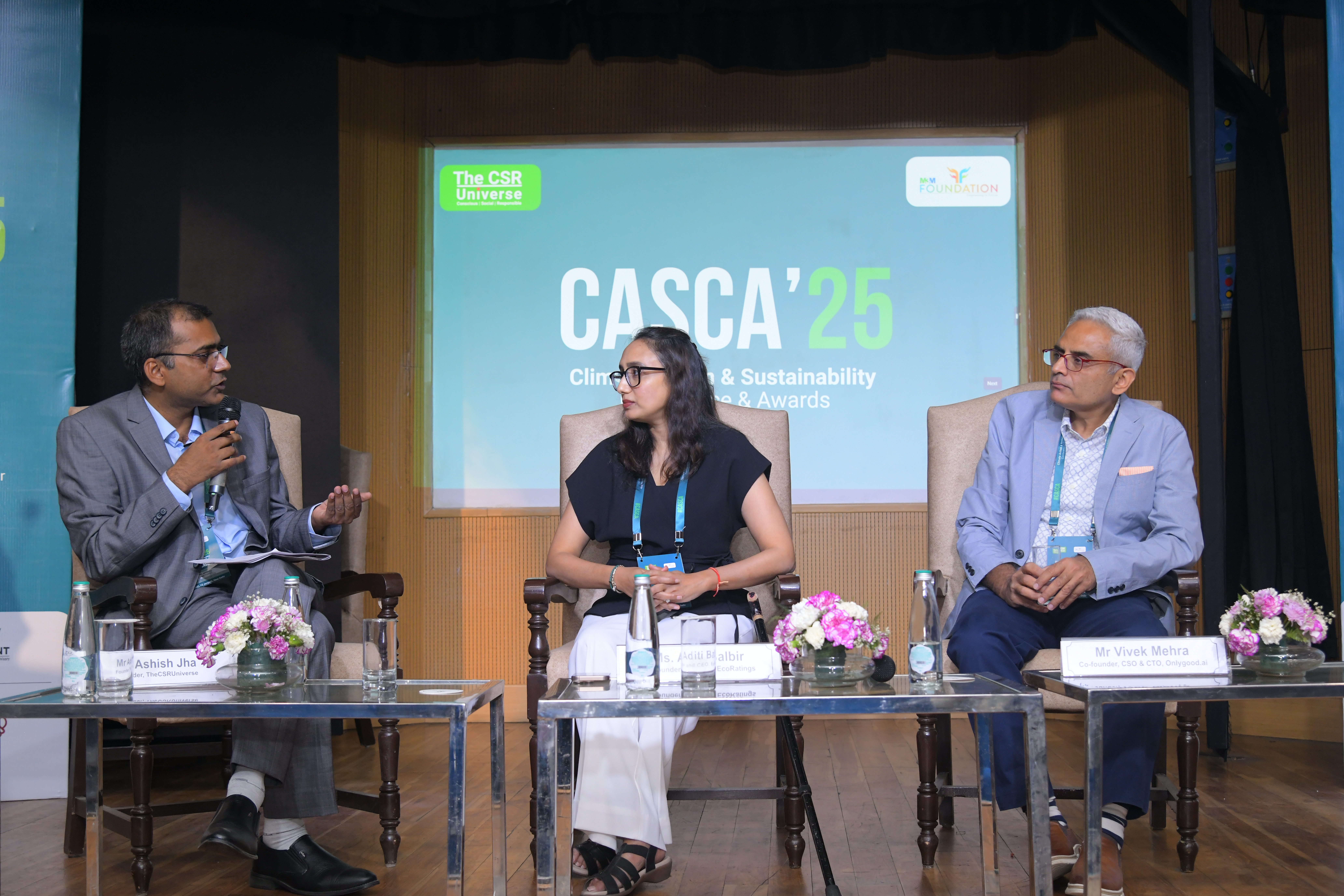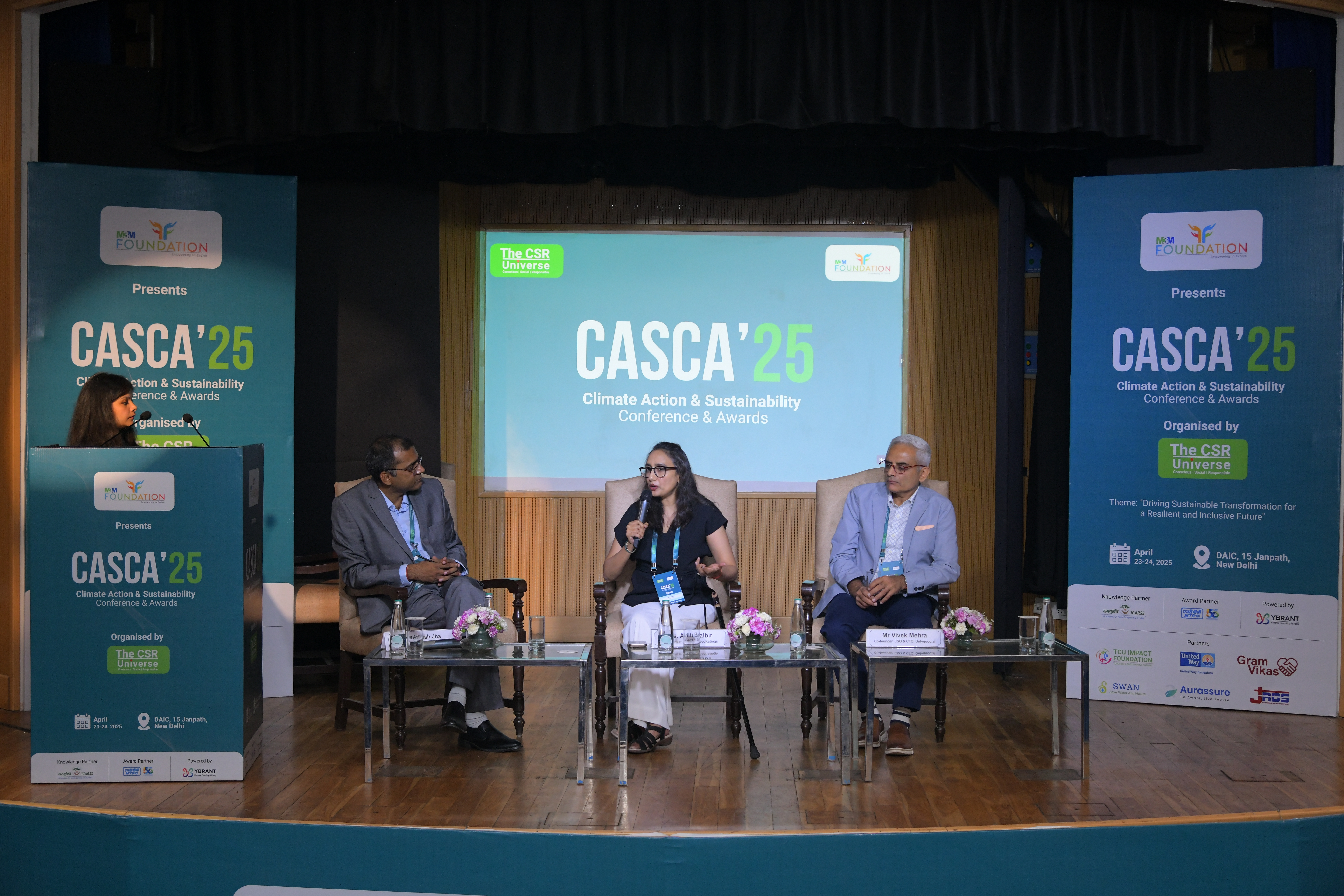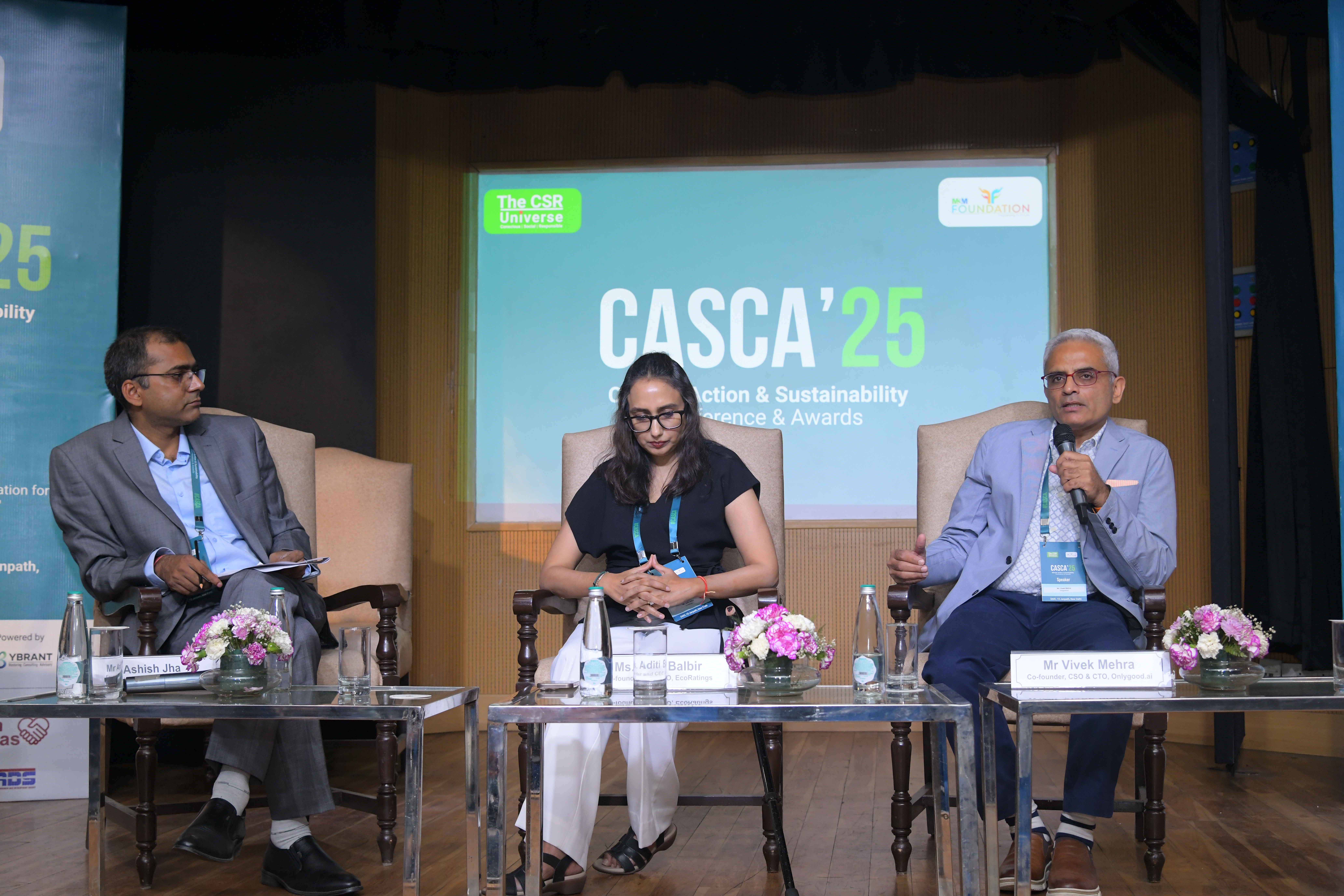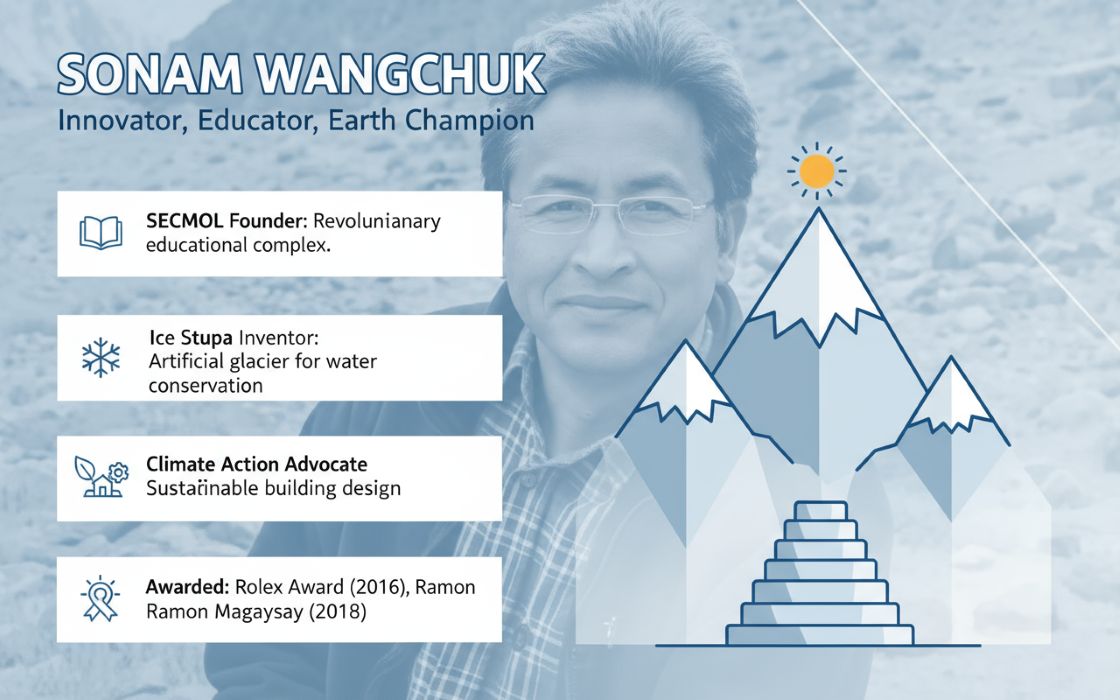As the world grapples with an escalating climate crisis, biodiversity loss, and growing social inequalities, businesses are being called upon to move beyond mere regulatory compliance and embed Environmental, Social, and Governance (ESG) principles deeply into their core strategies. This was the compelling theme of the strategic dialogue “ESG Beyond Compliance: Driving Real Impact in Business,” held at the Climate Action and Sustainability Conference & Awards (CASCA’25). Moderated by Mr. Ashish Jha, Founder of TheCSRUniverse, the panel featured two visionary leaders—Ms. Aditi Balbir, CEO and Co-founder of EcoRatings, and Mr. Vivek Mehra, Co-founder, CSO, and CTO of Onlygood.ai—who shared insights on how ESG can be transformed from a compliance checklist into a powerful driver of business value and sustainability.
Simplifying Sustainability with Generative AI
Ms. Aditi Balbir opened the discussion by addressing a fundamental challenge: why sustainability often feels so complicated for businesses. She highlighted the overwhelming landscape of over 20 ESG frameworks, jargon, and sector-specific complexities that leave many companies uncertain about where to begin. Through her company EcoRatings, Aditi is pioneering the use of Generative AI to demystify ESG for organizations of all sizes. Her vision is to make ESG frameworks accessible, relevant, and actionable without requiring companies to hire in-house ESG experts.
“Businesses act when it’s necessary for business,” Ms. Aditi emphasized. She pointed out that beyond ethical imperatives, the real impetus for ESG adoption lies in tangible business benefits—such as enhancing brand reputation, unlocking ESG-linked financing, optimizing costs through energy savings, and improving export competitiveness. In this way, sustainability is not just a moral choice but a smart business strategy. 
Data as the New Dashboard for ESG
Building on the theme of actionable insights, Mr. Vivek Mehra stressed the critical role of data integrity and transparency in driving authentic ESG transformation. He likened the current state of many companies’ ESG efforts to “driving a car with no dashboard,” where decisions are made without real-time, reliable data.
Onlygood.ai addresses this gap by providing businesses with a “blood report” that continuously monitors carbon emissions, energy use, water consumption, and waste, with a particular focus on Scope 3 emissions—the indirect emissions embedded in a company’s supply chain that often constitute over 90% of its total carbon footprint. Vivek underscored the prevalence of superficial ESG disclosures, often based on one-off audits, which contribute to rampant greenwashing. His company combats this by offering real-time, verifiable data and free IoT tools to suppliers, especially small and medium enterprises (SMEs), enabling them to participate in sustainable value chains without prohibitive costs.
Bridging the ESG Divide Between Large and Small Businesses
The panelists acknowledged that ESG challenges vary significantly between large corporations and SMEs. Large companies wrestle with the complexity of managing diverse data across geographies, facilities, and business units, often facing a “data nightmare.” Conversely, SMEs struggle with limited ESG knowledge, resources, and access to credible consultants, often encountering a “muddy” consulting landscape that delivers templated reports without driving meaningful action.
The solution, according to Ms. Aditi and Mr. Vivek, lies in technology-enabled, plug-and-play platforms that simplify data collection and automate ESG analytics. Such tools empower both large enterprises and SMEs to measure, report, and act on sustainability goals effectively.
Transparency and Trust: The ESG Reporting Conundrum
When questioned about the trustworthiness of ESG disclosures, both experts agreed that environmental and social data are increasingly verifiable through technology—via electricity bills, IoT meters, and satellite imagery. However, governance remains a more elusive domain. Aditi noted that governance is largely policy-driven, and the gap between having governance policies and actual implementation is difficult to measure.
Mr. Vivek added that behavioral barriers often impede transparency more than technological limitations. Many suppliers hesitate to disclose data on groundwater usage or carbon-intensive practices due to fears of losing contracts, even when offered free monitoring tools. This reluctance highlights the need for building trust and fostering a culture of openness in ESG reporting.
From Compliance to Purpose-Driven Culture
Looking ahead, the panelists concurred that embedding ESG into corporate DNA requires strong, top-down leadership and a shift from compliance-driven reporting to purpose-driven action. Mr. Vivek shared the example of a U.S. client steadfastly committed to a 2027 net-zero goal despite political headwinds, driven not by regulation but by conviction that it is the right thing to do.
Ms. Aditi echoed this, observing that many clients pursue ESG due to leadership intent rather than regulatory pressure. She stressed the importance of educating internal teams, stakeholders, and investors to align on long-term ESG objectives. Only when strategic intent meets data-backed action can ESG transcend compliance and generate enduring business value.
The Road Ahead for ESG in India
While India currently lags behind Europe in ESG readiness, the panelists noted a growing awareness and urgency, especially among exporters facing new regulatory pressures like the EU’s Carbon Border Adjustment Mechanism (CBAM). However, they cautioned against complacency and over-reliance on external solutions, citing the electric vehicle industry’s dependence on Chinese imports as a cautionary tale.
“Indian industry must invest in ESG now,” Mr. Vivek urged. “Don’t wait for the perfect policy or product. Build it, and the market will follow.”
Profit with Purpose: The New Business Imperative
The CASCA’25 dialogue made it clear that ESG is not a finite destination but a mindset shift—a transformation of how businesses create value in harmony with society and the planet. Whether a startup or a multinational, the call to action is to move beyond checklists, measure what truly matters, and align profit with purpose.
In the emerging economy, profit without purpose is no longer sustainable. As Ms. Aditi and Mr. Vivek demonstrated, leveraging technology, transparency, and leadership commitment can unlock real business impact while addressing the urgent sustainability challenges of our time.









.jpg)






